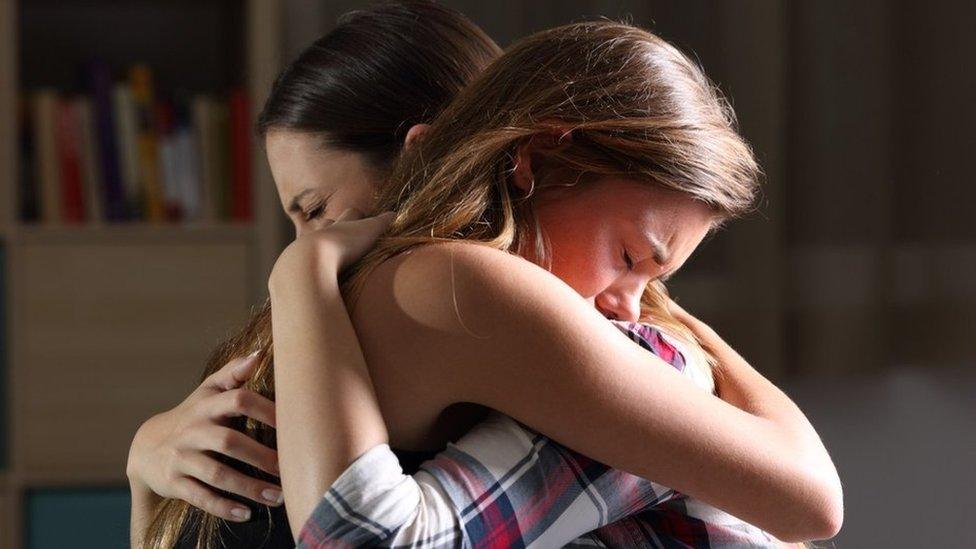Bereavement: How do you navigate grief as a child?
- Published
"I think that you should just keep thinking about them and imagine that they're still there," says Daniel, 11
Grief can be difficult to navigate at any age, but when you're a child who has lost someone you love, it can be particularly complicated.
Daniel is 11. His father Colm died in April aged 57 - he had a rare lung condition and received a double transplant nine years ago.
His dad was "very funny, kind and nice", according to Daniel.
"He had a transplant around nine years ago but his lungs failed on him and infection happened," he said.
"It was very sad and hard.
"But he needs to be talked about and it's important to remember him."
Daniel, whose full name we are not using, wanted to speak to BBC News NI about his experience with grief to raise awareness about organ donation.
"Organ donation is very important and it can help you live more," he said.
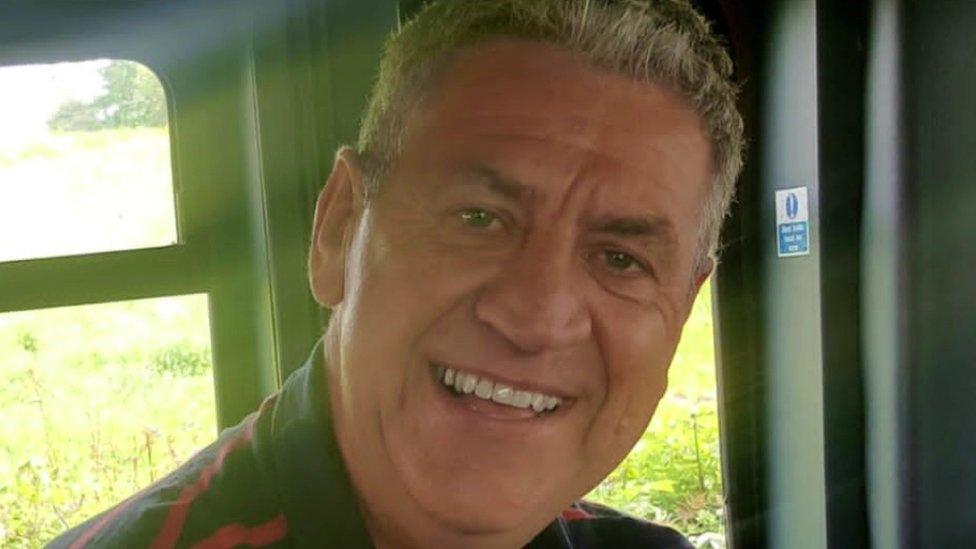
Daniel's dad Colm died a few months ago
In September, Daniel started grammar school.
"I've made new friends and they're all very nice," he said.
"I've told one of my friends what has happened, I think they need to know what's happening."
'I pretend he's still there sometimes'
Daniel said his favourite memories of his father are on holiday in Spain, Lanzarote and Donegal.
"We liked to go to the beach and into the pool for a wee while," he said.
The schoolboy he would advise other children dealing with grief to think about the loved one they've lost.
"I pretend he's still there sometimes and it does help a lot," he said.
"I think about him being in Lanzarote on the beach with us and in the pool."
Asking for help
Daniel is also 11. His sister Julia died last year.
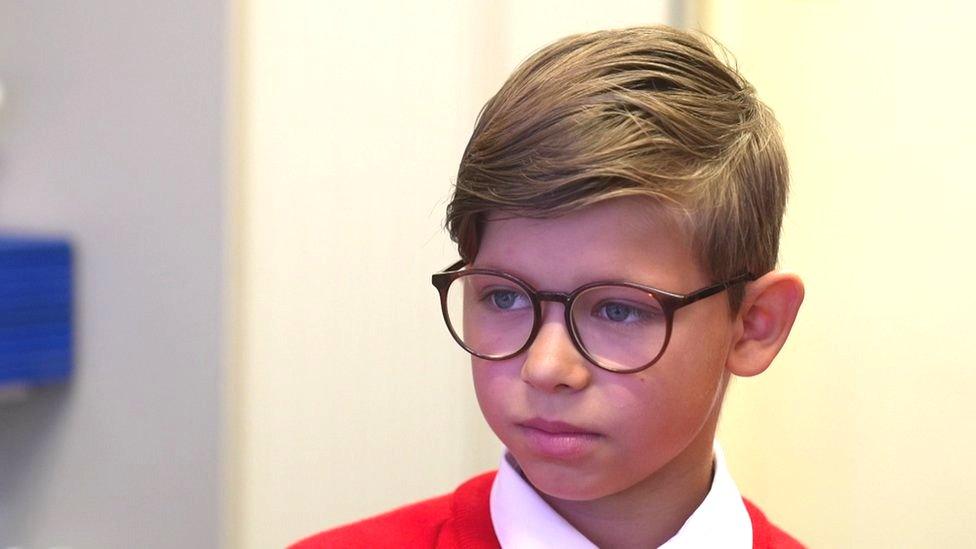
Daniel, whose full name we are not using, said when dealing with grief it's fine to ask for help
She had a rare form of cancer and was just weeks away from her 16th birthday when she passed away.
"She was always kind and she always had a big smile on her face," said Daniel.
During the interview, Daniel occasionally squeezes his "special heart", which is made of orange and white fabric.
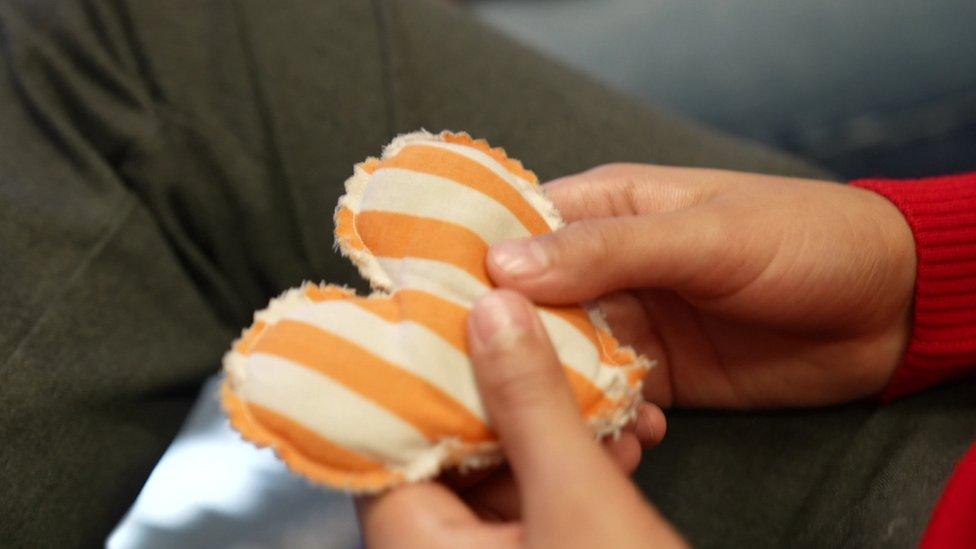
"I always have it in my pocket if I have a pocket that lets it fit. Julia had one as well so I just squeeze it as if she's still here," he said.
"If I feel sad or worried, I usually just squeeze it and it actually works."
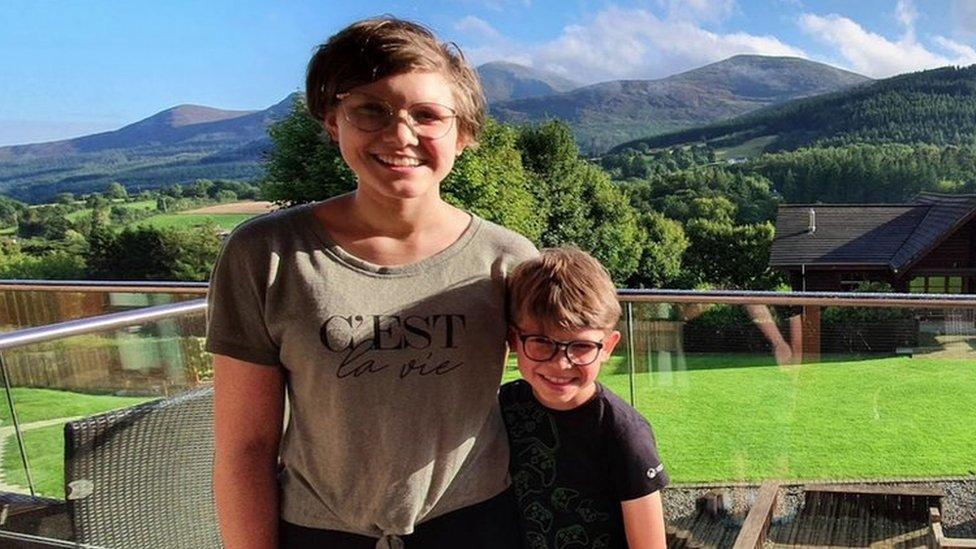
Daniel says his sister Julia was always smiling
Daniel hopes that by speaking out he can help other children dealing with grief.
"Generally just keeping busy helped," he said.
"It doesn't really matter what you do, it just helped to keep busy and move on with your day.
"It depends on my mood if I want to talk about her or not. If I'm a bit more happy it would usually be fine but if I'm already sad I just usually need a little bit of a break.
"Just keep going, it's fine to cry or be sad, it's normal.
"And if you need help, just ask for it."
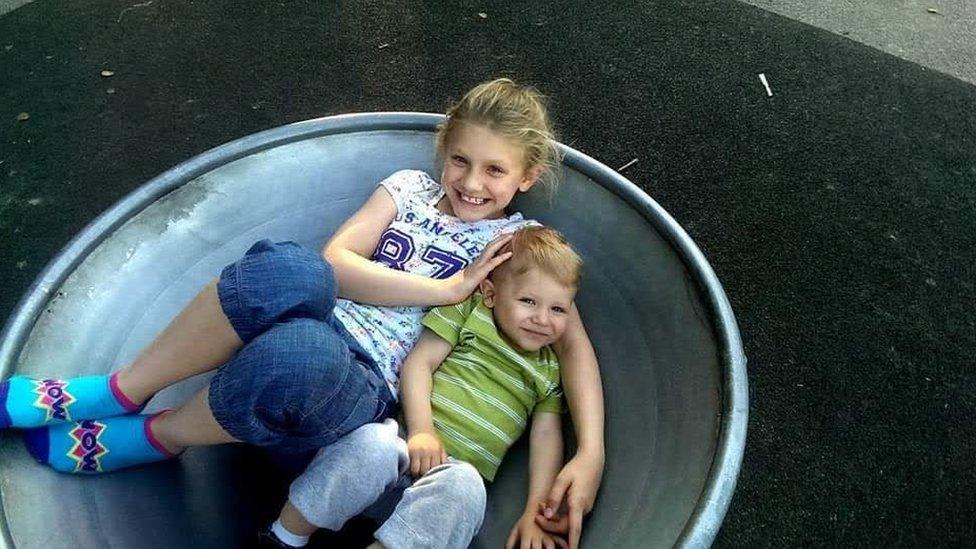
Both of the boys were pupils at St Bernard's Primary School in south Belfast when they lost their loved ones.
The school has organised a colour run for Sunday, in support of organisations that helped the boys.
Acting principal Jenni Maguire said the school wanted to support the pupils' families while looking towards "brighter times ahead".
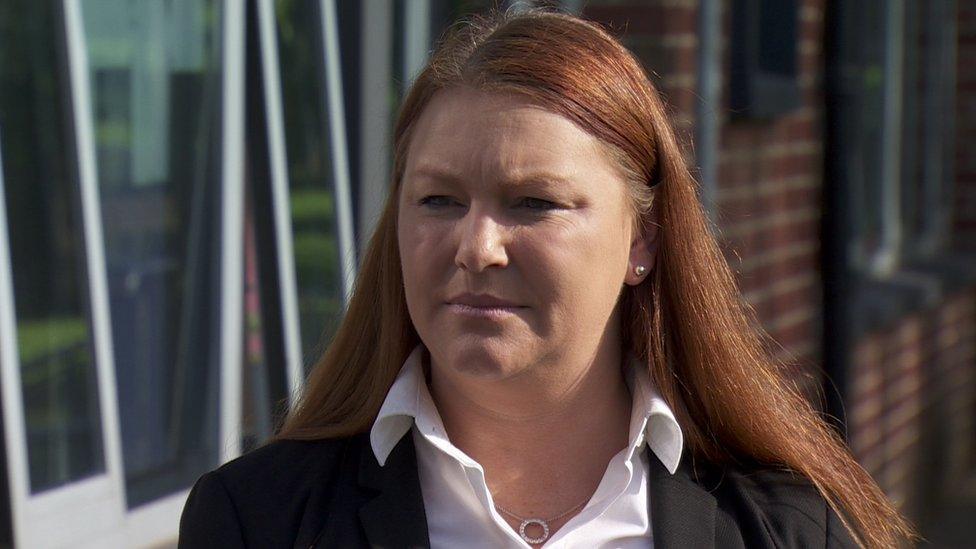
Jenni Maguire said the boys have shown how resilient they are
"Every child deals with grief and bereavement differently," she said.
"Their world was turned completely upside down, and I guess school was their little bit of normality and routine, and that helped.
"I have learned how resilient they can be. Every day I see them with a smile on their face, they're working hard, they're playing in the playground.
"I've also learned we need to take it at their pace. In terms of counselling and other services, we've been very much guided by when the children felt ready.
"Listen to the young person - when they're ready to talk they will let you know.
"Sometimes as adults and even as teaching staff we might feel uncomfortable talking about it because we don't want to upset them - but I've learned it's good to talk when they're ready to do so."
'Individual' grief
Linda Warwick, from Cruse Bereavement Support, said: "Children and young people experience similar feelings as adults when someone dies, but they may express them differently.
"Although a child's grief is individual, their understanding of death changes as they get older.
"Children between five years and 12 years of age have a wider understanding of death and what it means.
"They begin to realise that death is the end of a person's life, and that the person who has died won't return.
"When someone dies it's important to share information about what happened and it's very important to let children talk about their feelings, and make sure they feel listened to."
If you have been affected by bereavement, help and support is available at BBC Action Line.
Related topics
- Published29 April 2023
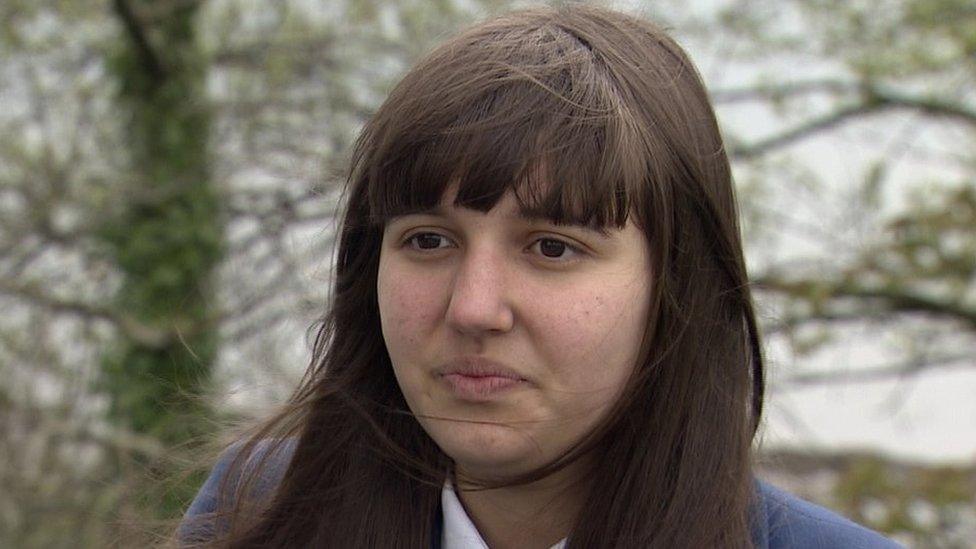
- Published6 October 2022
